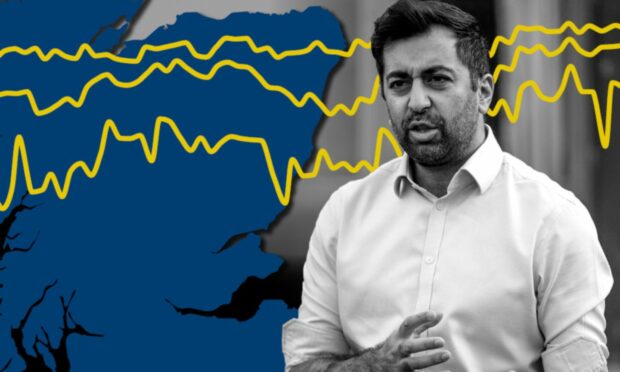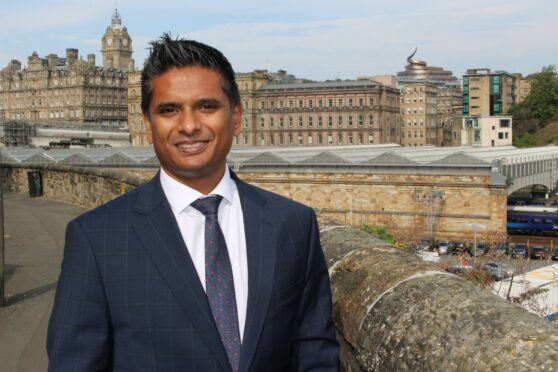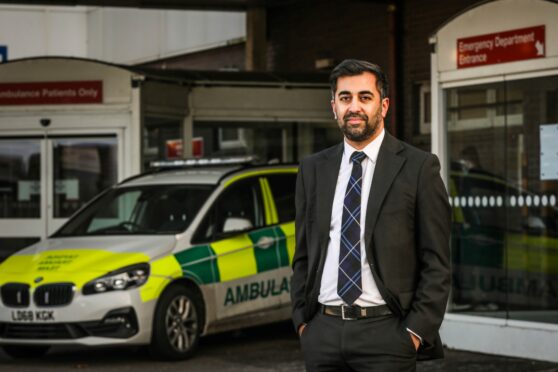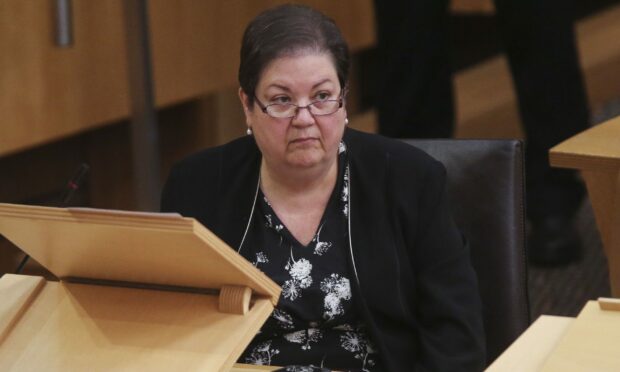Patients in Grampian are having to wait almost five years for key diagnostic tests, according to new Tory analysis.
Official figures show people across the region are facing “shocking and shameful” waits to undergo routine screenings.
The longest recorded wait in Grampian last year was 258 weeks for a CT scan, while another patient had to wait 255 weeks for an MRI scan.
Another person in NHS Grampian waited 107 weeks for a non-obstetric ultrasound, the longest wait for that kind of diagnostic test.
The health board said the times include patients who need long-term monitoring.
Meanwhile, others had to wait 87 weeks for a colonoscopy with NHS Highland, 107 weeks for an upper endoscopy in Shetland and 39 weeks for the same treatment in Orkney.
The longest wait in the Western Isles was 119 weeks for a colonoscopy.
‘A ticking timebomb’
The figures again exposed the pressures facing the health service as First Minister Nicola Sturgeon updated the public on the wider crisis.
She set out what the SNP government is doing on Monday 16 January alongside Health Secretary Humza Yousaf and chief medical officer Professor Sir Gregor Smith.
Scottish Conservative health spokesman Dr Sandesh Gulhane described the figures as a “ticking timebomb”.
The NHS doctor warned patients’ lives are being put at risk on the Mr Yousaf’s watch.
“These figures are shocking and shameful,” Dr Gulhane said.
“These diagnostic tests are potentially life-saving so it is vital patients undergo them as quickly as possible.
“It is scarcely believable that certain patients have been waiting almost five years for one of these tests.
“These deeply concerning issues are not confined to one health board either, the lengthy delays are occurring right across Scotland.
“Frankly there is a ticking timebomb within our NHS.
“Lives are literally on the line, especially if patients have been waiting years to be seen.”
An NHS Grampian spokesman responded: “It is routine for patients, who have been treated for forms of cancer or have received forms of neurosurgical care, to have pre-planned and scheduled scans in future years, to monitor their progress and condition after treatment. These are not diagnostic tests prior to treatment.”
Calls for health secretary to go
Dr Gulhane stressed that while the figures represent the most extreme waits, there is a general trend of patients waiting longer to undergo key diagnostic tests.
The Tory MSP called for Mr Yousaf to be sacked immediately.
Our own data project revealed the full scale of the problems facing local services.
After 600 days with Mr Yousaf in charge, the NHS has suffered a 30% fall in A&E performance, a near 28% increase in waiting lists and almost 10% fall in performance against cancer waiting time targets.
There has also been a more than 65% increase in delayed discharge and almost 30% rise in workforce vacancies.
Record-breaking failure
Scottish Labour health spokeswoman Jackie Baillie renewed her call for Mr Yousaf to go as she insisted his “record-breaking failure has left our NHS fighting for its life”.
“After 600 days in the job we have been left with a string of grim new records and the worst winter in NHS history,” she said.
“Things are getting worse, not better.”
But Mr Yousaf said the NHS is experiencing its most challenging winter yet and people “must recognise the enormous impact of the pandemic on our health service, and on non-emergency treatment”.
“We are determined to clear the backlog of planned care appointments caused by the pandemic and have set ambitious targets to ensure patients waiting too long are seen more quickly,” he said.
“Health boards have developed plans to increase capacity, workforce and activity.”
Nicola Sturgeon’s crisis update
Ms Sturgeon, speaking in Edinburgh on Monday, accepted too many people are being affected by NHS pressure.
She said pressure on support line NHS24 is easing.
A&E waiting times are “stabilising” but still too high.
And hospital occupancy level as still “very high”.
Ms Sturgeon said efforts are focused to get the patients the right advice so they can avoid unnecessary trips to hospitals.
She announced all health boards will need to review patients’ discharge plans before the end of January to tackle so-called bed blocking.
Bed blocking is when a patient is clinically well enough to leave hospital, but can’t because there isn’t a suitable care package at home for them.
In November 2022 there were 133 daily delayed discharges in NHS Grampian and 164 in NHS Highland.
Ms Sturgeon appealed for people to get their Covid and flu vaccine and return to Covid-guidance such as considering face covers on public transport and healthcare settings.



